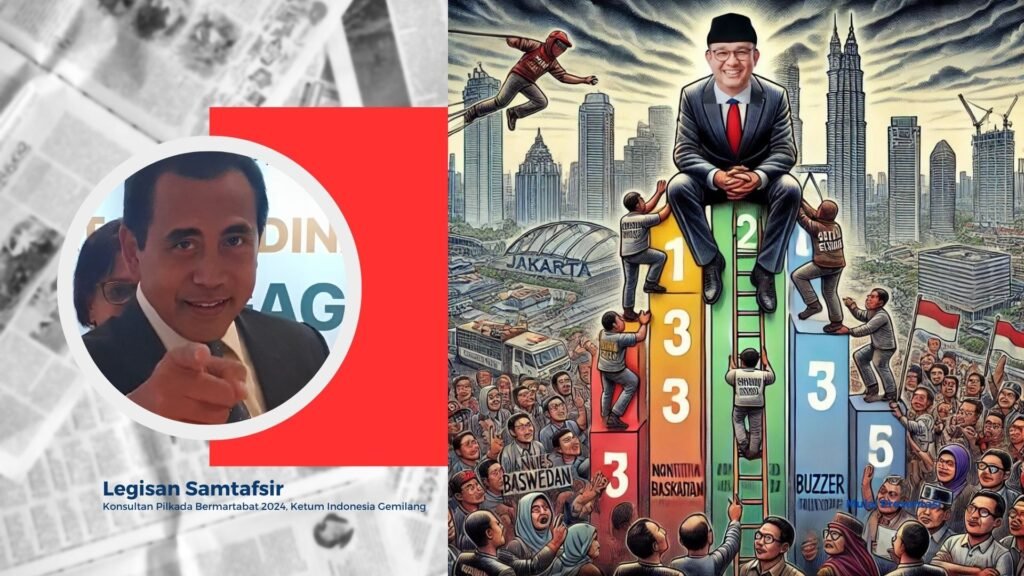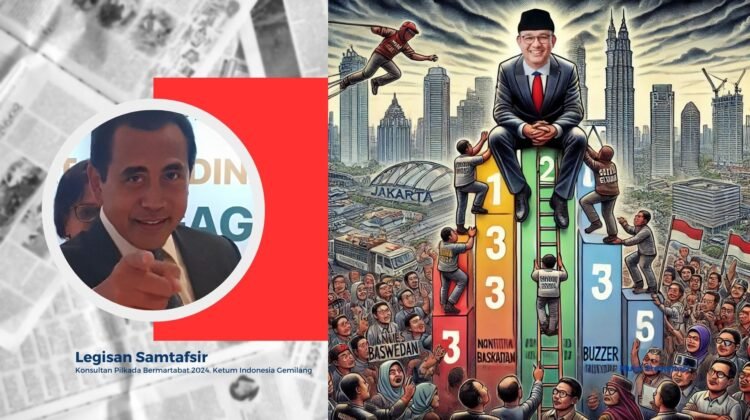ANIES, AN AUTHENTIC LEADER..?

“Humans are born from a mother’s womb, but leaders are born from the womb of society.” That is the essence of a true leader—an authentic leader—who serves and protects the interests of the people. In other words, a true leader is the personification of public idealism. He is not propped up by, let’s say, interference from the ruling regime or by the demands of oligarchs to serve their interests. A true leader grows with the people and becomes the anchor of their hopes.
Public Idealism
This begins with public idealism. The state is formed by the people, to serve and protect them. Anyone who takes on the duty of the state—specifically public officials—must be a statesman, meaning someone who works to serve the interests of the citizens.
A statesman is obliged to uphold public idealism as the foundation of all public policy. Thus, all of their missions, visions, strategies, values, and programs must be framed within that idealism. In essence, being a public leader means being the hope of the public. A true leader is the embodiment of the people’s aspirations. Therefore, when we say “the state is present,” it means that the leader is present to fulfill the public’s expectations.
As time goes on, the urgency of upholding public idealism only grows. Many acts by the ruling elite—who hold authority in the name of the state—are no longer carried out for or on behalf of the people. Take for instance the widely criticized forced evictions under the banner of National Strategic Projects (PSN), such as PIK2, Rempang, the New Capital (IKN), and others. The more authoritarian the ruler, the further away we drift from public idealism.
This is why it is so crucial to reaffirm and restore public idealism, especially in the context of choosing national leadership—particularly as we approach the 2024 Simultaneous Regional Elections (Pilkada Serentak).
Authentic Leadership
The term “authentic leadership” was popularized by Robert W. Terry (2002). Its core characteristics include at least six qualities:
Genuine personality preferences—honest and straightforward (no lies or deception);
Inclusiveness—openness and appreciation for diversity;
Self-reflection—willingness to correct oneself;
Embracing all—encouraging reflective engagement;
Clear direction and measurable vision;
Universal social ethics.
To fairly assess Anies Baswedan, look at Jakarta from 2017–2022. Which regional leader in Indonesia entered the race without paying a political dowry to a party? While most candidates were courting political parties, Anies was the one approached by a party. This shows that the leader was needed by the public. You don’t need to be a party chairman to run for office. That may be rare—but Anies ran, was elected Governor, and was supported by the people because of his strong idealism.
Anies entered the scene at a time when public trust in leaders’ integrity was at a low. He viewed the role of governor—or any public office—as a mandate to serve the people, not as a position to be begged for. He didn’t plead for power; instead, he was asked and chosen by the people to lead.
His sincerity and humility are palpable to anyone who interacts with him. When speaking publicly, he is careful—always weighing truth, justice, and public interest. His “four principles of public policy” (justice, public interest, common sense, and regulations) reflect his deep conviction in upholding public idealism. Nearly all of his campaign promises from the 2017 Jakarta gubernatorial race were fulfilled.
Anies’s inclusivity is undeniable, as he reached out to and embraced people from all walks of life. His motto, “reach everyone” and “involve more people in public policy,” reveals his egalitarian and open mindset. His appreciation for diversity was evident in his administration’s equitable services to all ethnicities, groups, and religious communities.
His vision for Jakarta was clear, focused, and measurable: “A progressive, sustainable, and cultured city, where citizens participate in building civilization, justice, and prosperity for all.” This visionary thinking was then translated into detailed missions. His tagline “ideas, narratives, and action” reflected his openness to public input and collaboration in policymaking.
Anies had already gained international recognition even before becoming Governor of Jakarta. The world awarded him—not without merit, but because of his competence and achievements. As Governor, he also earned hundreds of accolades. This means Anies is a global citizen, someone who lives by universal social ethics.
Of course, Anies is still just human. As some friends put it, “Don’t compare Anies to perfection.” Indeed, no one can match up to perfection—because no one is perfect.
Conclusion
Is Anies an authentic leader? That depends on the parameters and information we use. Those who lack objectivity will likely be biased by their own interests. But those who assess the data with knowledge and reason can conclude that Anies is the kind of leader the people long for—especially those who still believe in national idealism.
Jakarta is the barometer of Indonesia—a center of economic growth, diversity, dynamism, education, culture, and information. It doesn’t just need a governor; it needs an authentic, nationalist leader with a strong track record.
Good luck, Mr. Anies… 👍👍








